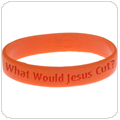While the abuses of power and privilege in modern banking may not be as explicit as David’s crime, they are parallel. People in power tend not to consider the cost of their self-interest in communal terms. Most families who are facing foreclosure in New York City today are the victims of banks who regard a homeless child as a reasonable side effect of their profit motive just as David regarded Uriah’s death as a reasonable way to Bathsheba.
Although often lost in a generic celebration of the giving of the Spirit, this text is one that is filled with questions of ethnicity, language, and diversity. It speaks to the American debate of whether this nation can or should be a melting pot that blends and ignores culture and ethnicity or a mosaic and celebration of the diversity that exists in our midst. But first, some background:
This procession down to Jerusalem is one of those very public moments in Jesus’ ministry. It could be called his most brilliant act of political theatre. Jesus proceeds toward Jerusalem, with a crowd that undoubtedly boasts some of the same sorts of outsiders Jesus has been connecting with all along: sinners, the possessed, the sick and blind, women, and foreigners. The crowd that shouts Hosanna would have been laughed at by any sensible members of society who happened upon this odd ritual. Much like I imagine today those with a high sense of their own political value would little understand what compelled these odd folk to gather as they had, creating trouble when they had little to gain but jail cells and crosses…
During the past two decades, political liberalism has been put on trial. Political theorists indebted to Sheldon Wolin (William Connolly, Romand Coles, Bonnie Honig) have, in various ways, exposed liberalism’s tendency to conceal or downplay significant dimensions of political struggle. These authors indict liberalism for its narrow understanding of public reason, an understanding that underestimates qualities, practices and interactions within our lifeworlds that tend to thwart liberalism’s drive toward consensus and agreement (here I am thinking of clashing visions of the good life, memory of injustice, or the emergence of new movements that challenge our very notion of publicity and reason). This trend within political theory resembles developments in religious studies and theology. Recent discussions between Stanley Hauerwas, Jeff Stout, and Cornel West revolve around liberalism’s tendency to depoliticize religious commitments by relegating them to the private sphere. For these authors, this inclination overlooks the deep connections between democratic struggle and religious practice within American history. These authors remind us that democracy and faith are bedfellows (and not necessarily strange ones).
Jonathan Kahn and Vincent Lloyd, in recent blog posts here, attempt to move these discussions further and potentially in new directions…
With the elections in Spain two weeks ago, the first modern government to explicitly model itself on the work of an academic political philosopher was voted out of office. The Spanish Prime Minister, Jose Luis Rodriguez Zapatero, had become a devotee of the Princeton political philosopher Philip Pettit in 2000, when Zapatero was leader of the opposition searching for how to envision left-liberal politics distinct from the Clinton-Blair “third way.” As a Zapatero associate put it, “Philip Pettit provided us with the appropriate grammar to furnish our political intuitions, to express the kind of proposals and dreams we had in mind for Spain. Pettit’s republicanism has been our north star.” Does the political philosophy that Zapatero found so compelling, civic republicanism, leave a role for faith?
Does this text foster or critique violence? Perhaps the text should be read as anti-political or an alternative politics? Or does it get at the question of our most sacred idol, the family?

Yesterday morning I got an email from Sojourners, one of my favorite progressive Christian organizations, asking for a donation to help deliver “What Would Jesus Cut?” bracelets to every member of Congress. The message? “To challenge elected officials and the administration to remember their moral priorities when they vote on the budget.” […]

